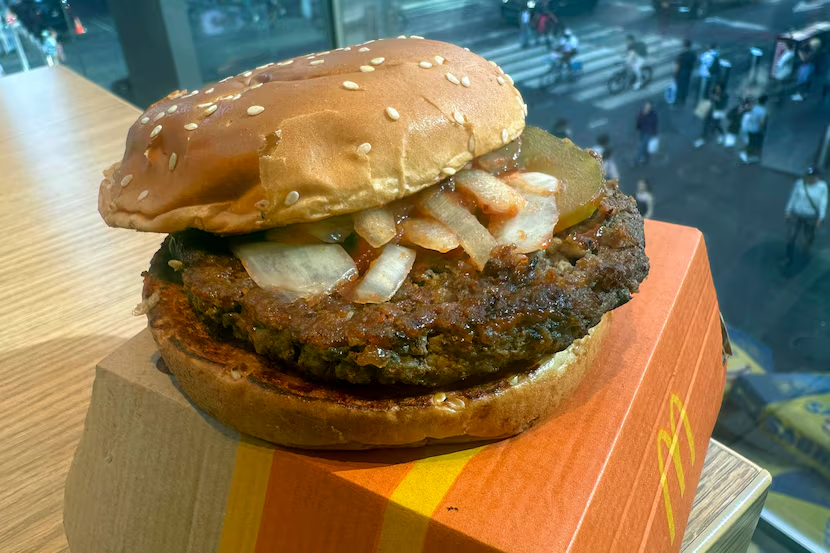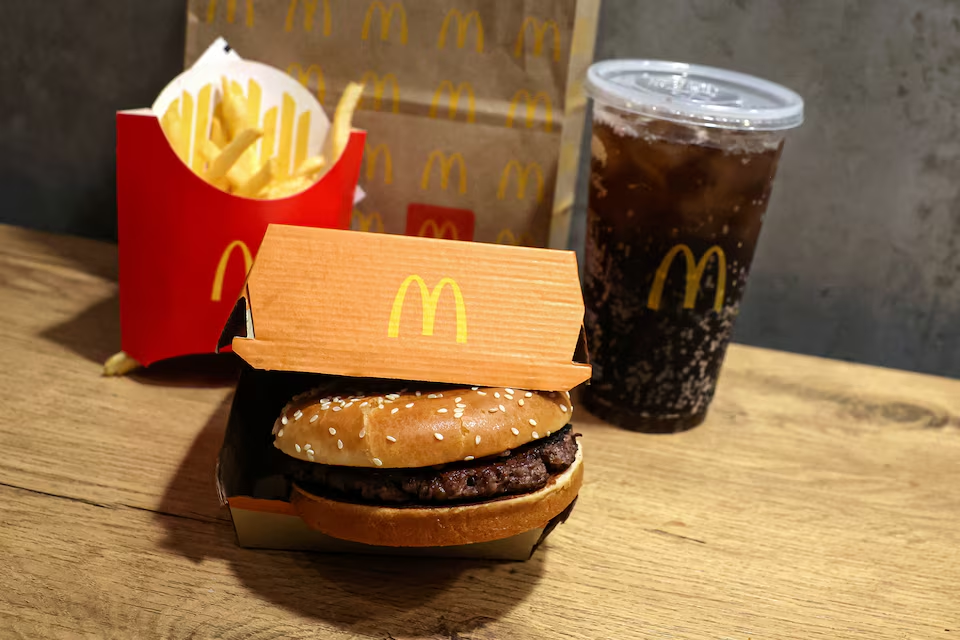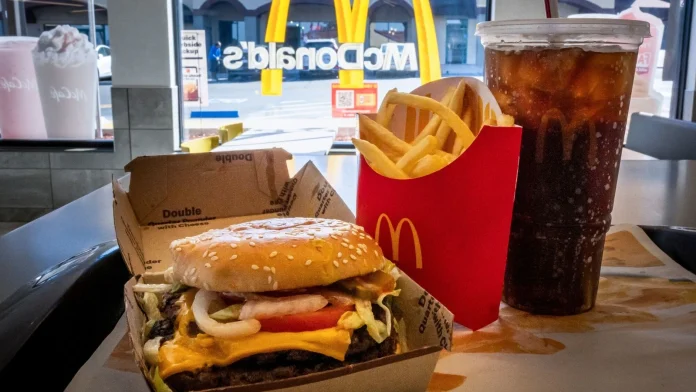A recent E. coli outbreak linked to McDonald’s Quarter Pounder hamburgers has impacted at least 75 people across 13 U.S. states, with the CDC confirming that 22 have required hospitalization and one person has died from the severe bacterial infection. This outbreak, first reported by the FDA on Friday, has mainly affected residents in western and Midwestern states, including Colorado, Kansas, and Utah, with Colorado recording the most cases, at 26, along with one fatality. Health officials have raised concerns about the strain of E. coli involved, specifically O157:H7, which is known for causing serious complications, particularly in vulnerable populations like children, the elderly, and those with weakened immune systems.
The contamination is thought to stem from slivered onions used in the Quarter Pounder, provided by Taylor Farms, which distributes produce to approximately 900 McDonald’s locations in Colorado, Wyoming, and surrounding states. The CDC reports that, as a precautionary measure, McDonald’s has temporarily removed Quarter Pounders and all fresh slivered onions from about 20% of its 14,000 U.S. restaurants. In addition, Taylor Farms has recalled specific onion batches processed at its Colorado facility and stated that all precautionary measures are being followed to avoid further risks.

Both McDonald’s and the FDA are investigating the possibility that contaminated onions may not be the only source of the outbreak, as samples of beef patties used in Quarter Pounders are also being tested for E. coli. To mitigate public health risks, McDonald’s has halted sourcing onions from the Taylor Farms Colorado facility until a full resolution is achieved. Furthermore, the USDA and state health partners are conducting rigorous checks to confirm that both the beef and onions meet safety standards.
The outbreak has prompted other fast-food chains, including Yum! Brands (Taco Bell, Pizza Hut, and KFC) and Restaurant Brands (Burger King), to remove fresh onions sourced from Taylor Farms from their menu items. Although no illnesses have been reported at these chains, the proactive recall aims to minimize any potential spread. Burger King, in particular, has disposed of onions at about 5% of its U.S. locations that sourced from Taylor Farms as a preventative measure.
Following the public announcement of the outbreak, McDonald’s shares saw an initial 7% drop, though they rebounded later in the week. This incident places the fast-food chain under financial pressure at a time when it is already grappling with changes in consumer behavior and a shift toward more cautious spending on dining out. McDonald’s noted that, while the outbreak’s impact on revenue remains uncertain, the company is working swiftly to return Quarter Pounders to affected areas once it is deemed safe.

Symptoms of E. coli infection typically appear three to nine days after exposure and may include severe abdominal cramps, bloody diarrhea, vomiting, and fever. The O157:H7 strain, involved in this outbreak, produces toxins that can lead to life-threatening conditions like hemolytic uremic syndrome, which causes kidney failure and disproportionately affects young children and older adults. Two patients from this outbreak have already developed this syndrome and remain under medical supervision.
The outbreak has also resulted in a lawsuit against McDonald’s by Colorado resident Eric Stelly, who fell ill shortly after consuming a Quarter Pounder and was later confirmed to have an E. coli infection linked to the outbreak. Stelly’s attorney stated that they seek full compensation for affected individuals and permanent corrective measures from McDonald’s and its suppliers to prevent future risks. The lawsuit was filed in Chicago, where McDonald’s corporate headquarters is based.
In addition to recalls and lawsuits, the CDC, FDA, and USDA continue close monitoring, issuing public health updates to ensure minimal risk to consumers.




